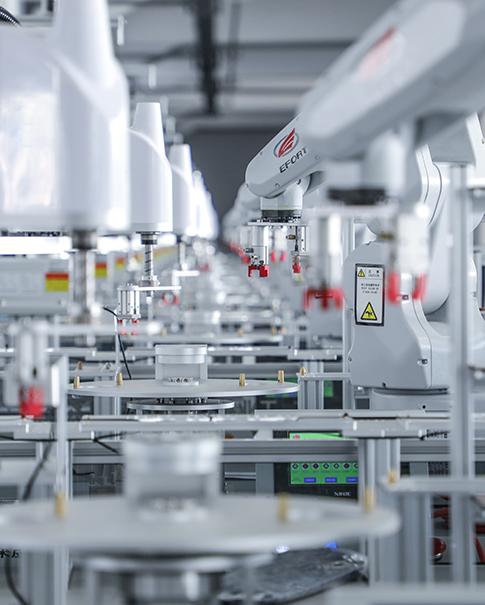Automation: The Core Driver of Green Manufacturing
Traditional manufacturing relies heavily on labor and resources, and faces issues such as low equipment utilization, high energy consumption, and opaque emissions. Automated systems, with their advantages of high efficiency, precision, and controllability, are becoming the key to green manufacturing. Through the collaborative work of PLC controllers, sensors, servo systems, and industrial software, automated production lines can monitor equipment operating status in real-time and intelligently adjust energy consumption. For example, a textile enterprise has saved more than 20% of electricity costs by deploying an automatic control system based on frequency converters for the air compression system alone.
Energy conservation and emission reduction, data-driven
Accurate management and monitoring of carbon footprint are crucial in green manufacturing. The combination of automation control system and industrial data platform can achieve functions such as energy consumption monitoring, carbon emission statistics, process tracking, and predictive maintenance, forming a complete "green closed loop". For example, intelligent lighting systems can reduce lighting energy consumption by more than 30% through induction control; In high energy consuming industries, the combination of DCS systems and AI algorithms optimizes heat recovery and raw material feeding, significantly reducing carbon emission intensity. In addition, the industrial Internet platform connects production equipment, providing data support for enterprises to participate in carbon trading.
Digitization transformation, unleashing green potential
With the development of AI, digital twins, edge computing and other technologies, green manufacturing has entered the stage of "intelligent optimization". Equipment can not only be linked, but also make self decisions. For example, new energy battery factories use AI algorithms to identify energy consumption anomalies, issue maintenance instructions in advance, and reduce unplanned downtime by 40%; The chemical and pharmaceutical industries use MES systems combined with automated execution layers to achieve precise tracking and optimized control, promoting "green and transparent manufacturing".
Policy support to accelerate green transformation
Green manufacturing is not only a corporate behavior, but also a result of policy promotion. In recent years, the country has issued multiple policy documents, such as the "Implementation Guidelines for Green Manufacturing Projects" and the "Action Plan for Industrial Energy Efficiency Improvement", which clearly support intelligent upgrading and green process equipment. Starting from 2024, provinces will carry out certification for green factories and green parks, with automation level and energy management system integration becoming important evaluation indicators, further highlighting the importance of automation in green manufacturing.
Enterprise Perspective: The Transition from Cost to Value
More and more companies are realizing that green manufacturing is not only a compliance cost, but also a reflection of brand, efficiency, and future value. Through automation, enterprises not only save energy and labor costs, but also enhance customer recognition of their green supply chain, resulting in a significant increase in order volume. In export-oriented enterprises, green auditing and carbon disclosure have become entry barriers for orders, and factories with high automation, traceable data, and intelligent operations have become the preferred choice for global buyers.
Conclusion
Green manufacturing is not only an environmental revolution, but also a battle for industrial upgrading with automation at its core. In the future, whoever can move faster and more steadily in this new industrial competition of "green+intelligence" may have the potential to win the initiative in sustainable development.Email us
Reply within one working dayVisit us
32D Guomao Building, No.388, Hubin South Road, Siming DistrictDisclaimer : Salesplc sells new and surplus products and develops channels for purchasing such products. This website has not been approved or recognized by any of the listed manufacturers or trademarks. Salesplc is not an authorized distributor, dealer, or representative of the products displayed on this website. All product names, trademarks, brands, and logos used on this website are the property of their respective owners. The description, explanation, or sale of products with these names, trademarks, brands, and logos is for identification purposes only and is not intended to indicate any association with or authorization from any rights holder.
Copyright @2024 SalesPlc Limited. Sitemap
/ Blog
/ XML
/ Terms And Conditions
/ Privacy Policy
 Network Supported
Network Supported
